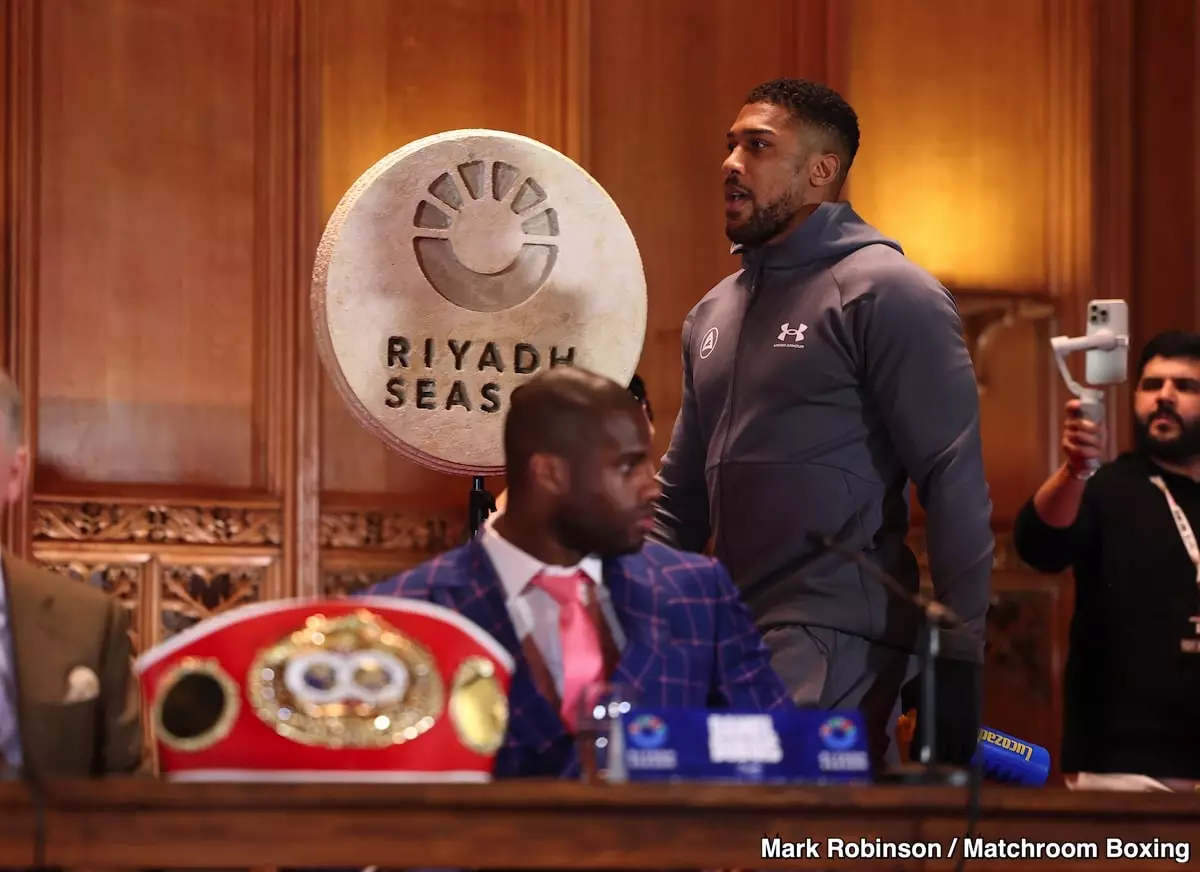The landscape of heavyweight boxing is unpredictable, particularly for Anthony Joshua, a two-time champion who has recently experienced significant setbacks. Following a crushing knockout loss to Daniel Dubois, Joshua’s immediate plans for a rematch appeared hopeful but have since shifted dramatically. Initially, his promoter Eddie Hearn hinted at a February rematch, suggesting that Joshua was eager to reclaim his status. However, lingering injuries from the defeat have forced them to consider a longer recovery period, pushing Joshua’s anticipated return to the ring potentially until summer.
One of the most compelling aspects of this situation is the ongoing debate surrounding Joshua’s legacy. As he prepares for a possible return in 2025, the specter of his waning career looms large. At 35 years old, each fight becomes increasingly consequential, not just for winning belts but for maintaining a credible legacy in a sport that thrives on narratives and rivalries.
As Joshua steps back to assess his options, the boxing world’s attention pivots to the upcoming rematch between Oleksandr Usyk and Tyson Fury. This bout carries significant weight for the heavyweight division and may ultimately dictate Joshua’s next moves. Hearn’s consistent assertion that Joshua will only face established fighters like Fury or Dubois emphasizes the risks associated with taking on lesser-known opponents. However, the reality is that the longer Joshua avoids these pivotal matchups, the less relevance he may have in the eyes of fans and analysts alike.
Moreover, this predicament raises important questions regarding Joshua’s mental resilience. Failing to secure victories against high-profile opponents could stymie his career. If he were to confront Fury or Dubois and face another defeat, the implications for his legacy could be severe. Joshua stands at a crucial junction where every decision will resonate within the annals of heavyweight boxing history.
A nine-month hiatus from competition is a substantial period that could impact Joshua’s performance upon return. Time away from the ring is not just about physical recovery; it also plays a significant role in a fighter’s mental state and strategic preparation. Will Joshua emerge revitalized, or will the absence cloud his ring instinct and timing? Given that championship fights often hinge on fine margins, returning after a prolonged break against elite competition presents a daunting challenge.
Critically, one must also contemplate how Joshua’s potential to avenge his defeat against Dubois—or lack thereof—will influence public perception. If Joshua’s team ultimately opts against a rematch, questions will arise about his competitive spirit and desire to rectify past mistakes. This, in turn, could foster narratives of decline surrounding his career, as boxing is unforgiving to those who shy away from confrontations that define legacies.
All eyes will be on Joshua in the coming months as he navigates a path that could lead to monumental fights or further stagnation. Each scenario presents unique challenges that could shape the final chapter of his career. Fans await clarity on whether he can overcome the disappointments of recent outings and assert himself once more as a formidable force in heavyweight boxing. As the countdown to a potential summer return commences, the weight of expectations will only grow heavier for a fighter once revered as a champion.


Leave a Reply